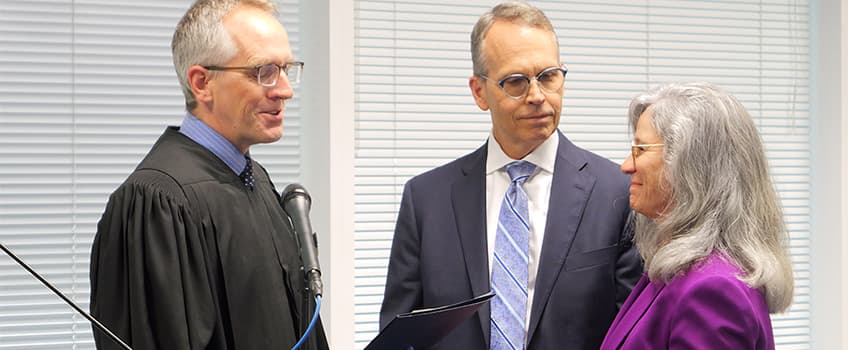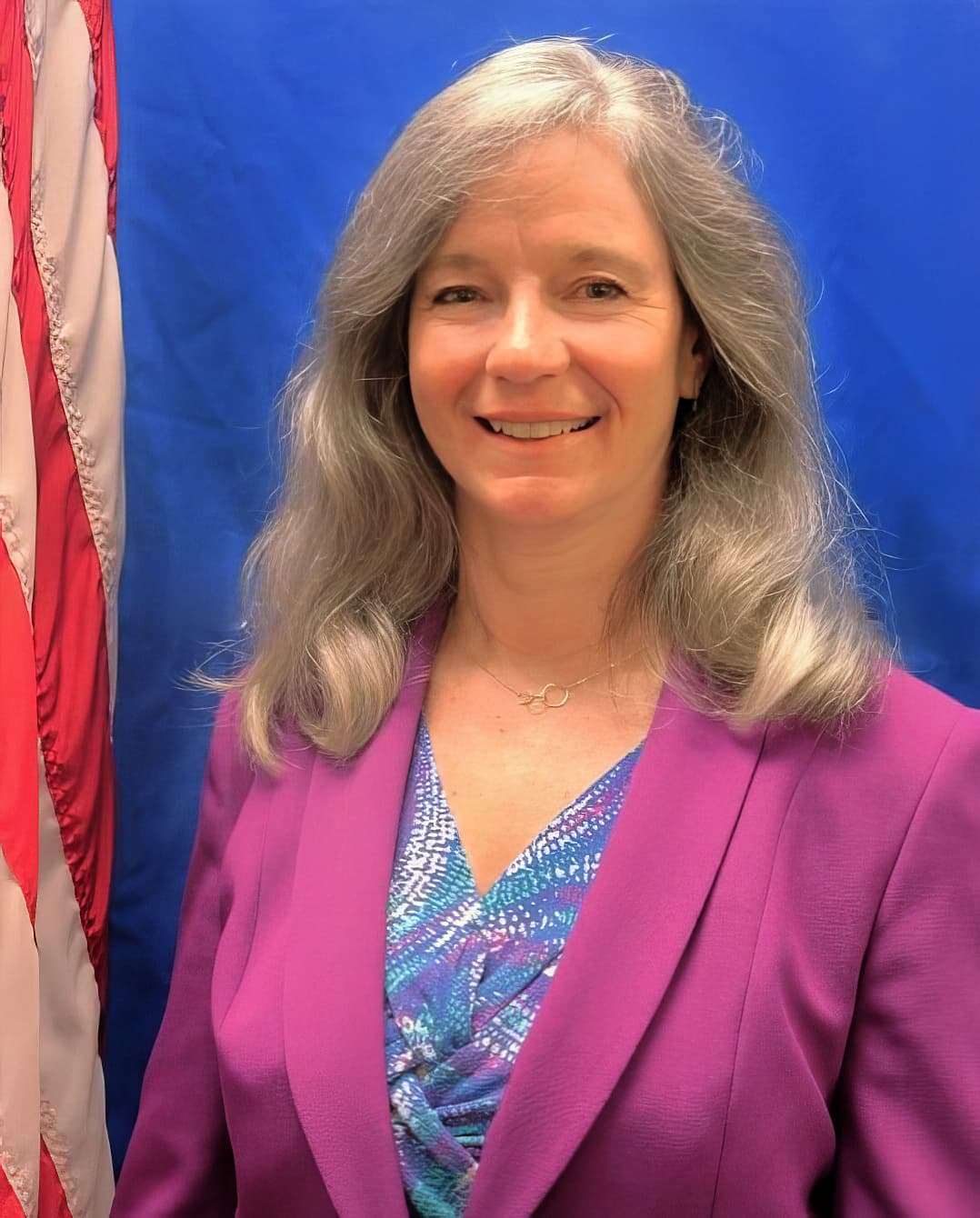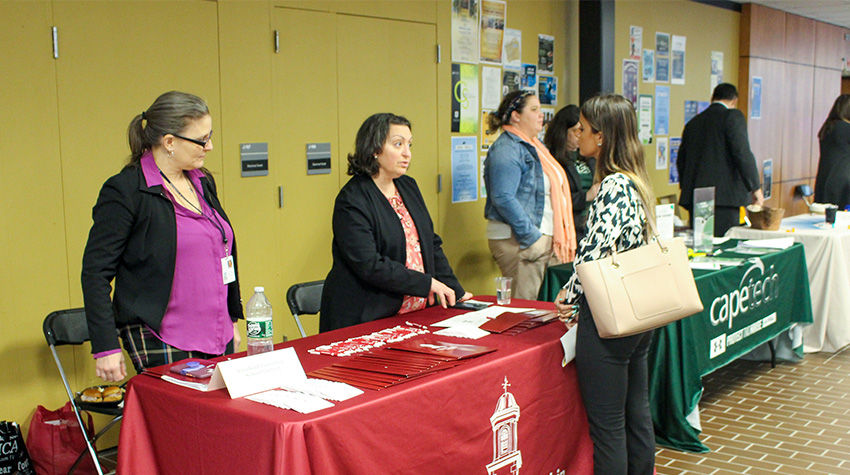Vice Provost Keenan Sworn In to N.J. State Board of Education

New Jersey Superior Court Judge Robert Loughy, left, swears in Stockton University Interim Vice Provost Claudine Keenan, right, as the newest member of the New Jersey State Board of Education during the board’s meeting Wednesday in Trenton. At center is Jack Keenan, Claudine’s husband.
Galloway, N.J. — Stockton University Interim Vice Provost Claudine Keenan was sworn in Wednesday as the newest member of the New Jersey State Board of Education.

I’ve spent my entire career dedicated to improving education, and I’m looking forward to collaborating with all of the stakeholders statewide to continue that work."Claudine Keenan, interim vice provost
Keenan served as dean of Stockton’s School of Education from 2012 until transitioning to the interim vice provost position earlier this year. Gov. Phil Murphy nominated Keenan to the 13-member board, and she was approved by the state Senate on June 28. Her term will expire on June 30, 2027.
“I’ve spent my entire career dedicated to improving education, and I’m looking forward to collaborating with all of the stakeholders statewide to continue that work,” Keenan said.
The State Board adopts the education administrative code, establishing regulations to implement state education law. These regulations cover the supervision and governance of the state’s 2,500 public schools, which serve nearly 1.4 million students. In addition, the State Board advises on educational policies proposed by the Commissioner and confirms Department of Education staff appointments made by the Commissioner.
“It’s been my experience as an advocate appearing before this board, that collectively the board always reaches better decisions the more the stakeholders engage,” Keenan said. “For me, it’s like coming full circle. Being able to participate in facilitating the stakeholders coming to us is very exciting for me.”
As Stockton’s Dean of Education, Keenan oversaw bachelors, masters and doctoral programs for more than 1,000 students. Prior to her role as dean, Keenan worked as the Chief Planning and Budget Officer for Stockton, where she was responsible for the supervision of institutional research and institutional assessment and accreditation.
“State Board of Education members serve selflessly and without remuneration to advance public education in New Jersey,” said Acting Education Commissioner Kevin Dehmer. “Each State Board member brings a unique perspective and their personal expertise to the table. I look forward to a positive, collaborative relationship with Dr. Keenan, the State Board’s newest member.”
Keenan received her bachelor’s degree in English and Secondary Education from Adelphi University, her master’s degree in Rhetoric and Composition from California State University, and her Doctorate in Education in Educational Leadership from the University of Massachusetts.
-- Story by Mark Melhorn
How Can We Help All Students to Benefit from Diversity?
CELEBRATE DIVERSITY DIGEST | SPRING 2023
After observing the state of education both in and out of New Jersey, Claudine Keenan, Dean of the School of Education, wanted to share her insights on how beneficial teacher diversity is for all students.






A strong consensus among social science researchers supports the multiple ways that all students benefit from diversity. National measurements and projections of public school enrollments suggest that our nation’s future students will continue to benefit from more diverse classmates through 2030.
However, these increasingly diverse high school graduates are pursuing education careers at uneven rates that are not equivalent to other careers that require a bachelor’s degree.
For example, while the percentage of teachers who identify as Hispanic, Asian, and Two or More Races has increased over the most recent decade or so, the percentage of teachers who identify as Pacific Islander and American Indian/Alaska Native has remained unchanged, and both the percentage of teachers who identify as White or as Black have decreased. As a result, the imbalance between our increasingly diverse P-12 student body and their educators continues to grow.


